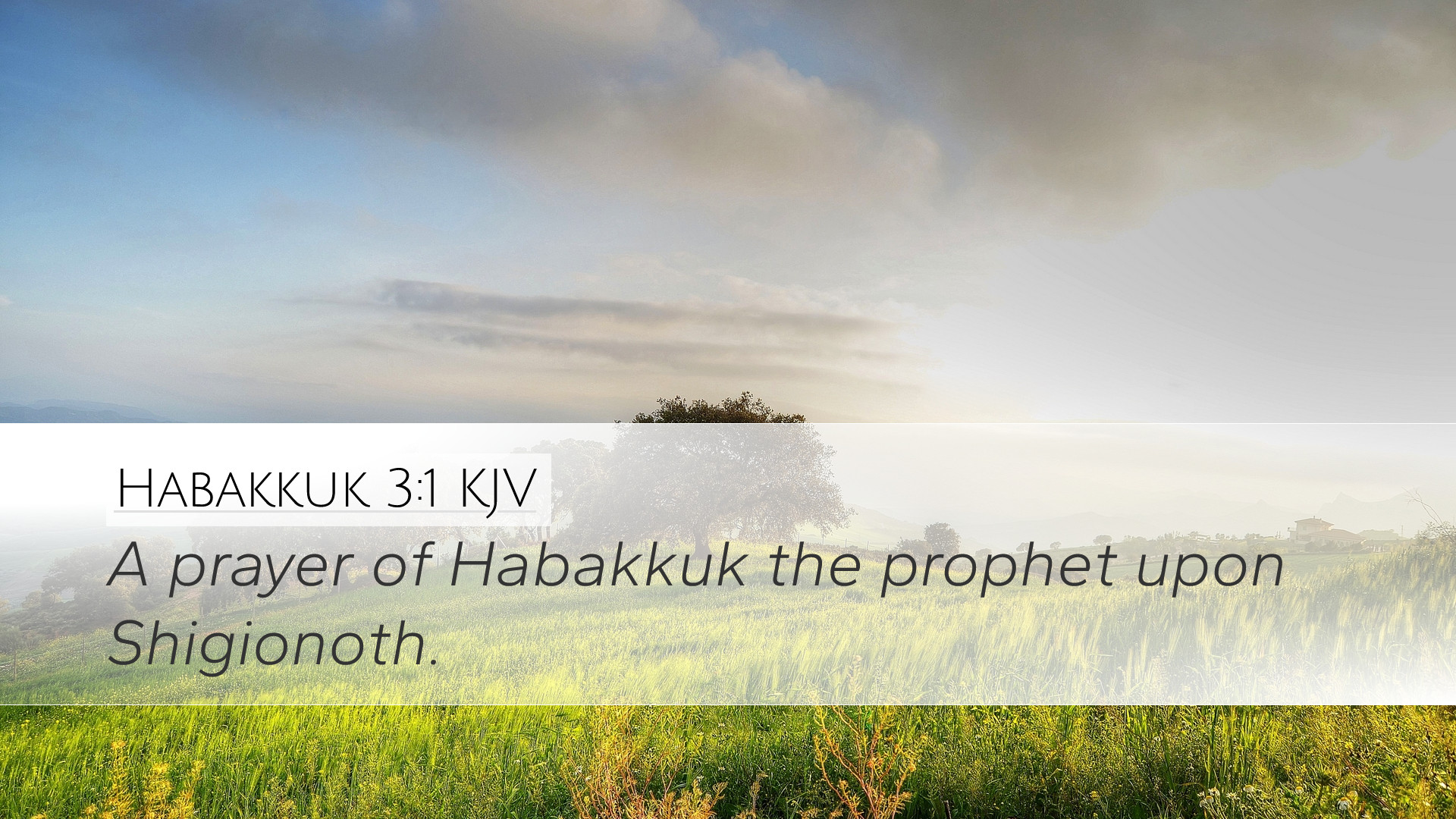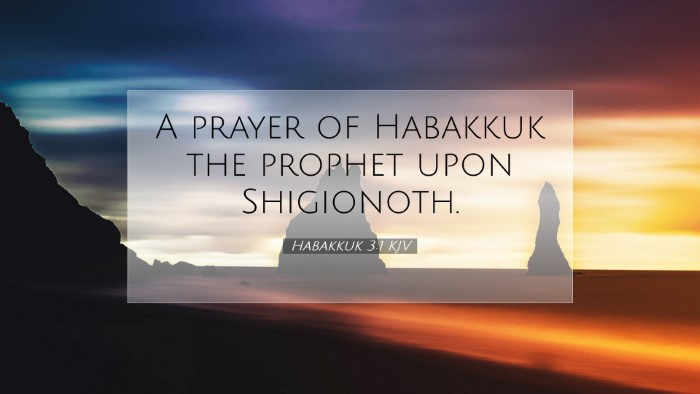Old Testament
Genesis Exodus Leviticus Numbers Deuteronomy Joshua Judges Ruth 1 Samuel 2 Samuel 1 Kings 2 Kings 1 Chronicles 2 Chronicles Ezra Nehemiah Esther Job Psalms Proverbs Ecclesiastes Song of Solomon Isaiah Jeremiah Lamentations Ezekiel Daniel Hosea Joel Amos Obadiah Jonah Micah Nahum Habakkuk Zephaniah Haggai Zechariah MalachiHabakkuk 3:1
Habakkuk 3:1 KJV
A prayer of Habakkuk the prophet upon Shigionoth.
Habakkuk 3:1 Bible Commentary
Commentary on Habakkuk 3:1
Habakkuk 3:1 states, "A prayer of Habakkuk the prophet upon Shigionoth." This verse serves as a profound introduction to the closing chapter of the book, highlighting the thematic shift from complaint to praise. The following commentary synthesizes insights from public domain sources to provide a rich exploration of this verse.
Context and Structure
In examining Habakkuk 3:1, it is essential to consider its placement within the broader narrative of the book. Habakkuk, unlike other prophetic books, primarily records a dialogue between him and God, illustrating the struggle with divine justice and faith amidst national calamity.
- Historical Context: Habakkuk prophesies during a tumultuous time for Judah, facing impending Babylonian invasion.
- Literary Structure: The chapter is structured as a psalm, utilizing poetic form to convey deep emotional and theological insights.
Prayer as a Response
The phrase "A prayer of Habakkuk" indicates a transition to a personal and communal form of worship. According to Albert Barnes, this prayer signifies a deep reliance on God in the face of adversity. Matthew Henry emphasizes the nature of prayer as an expression of both lament and hope.
Insights from Commentaries
- Matthew Henry: He notes that the prayer denotes a determination to seek God's presence and intervention, reflecting the prophet’s understanding of his limitations and the need for divine assistance.
- Adam Clarke: Clarke points out that the term "Shigionoth" may signify a vigorous, passionate song, indicating that this prayer is infused with intense emotion, characteristic of worship in times of distress.
- Albert Barnes: Barnes interprets Shigionoth as a musical notation, suggesting that this prayer is not only verbal but intended for public worship, enhancing the communal aspect of the plea to God.
Theological Implications
The intense emotionality found in this chapter underscores significant theological themes relevant to contemporary believers. The prayer embodies the struggle between faith and doubt, as believers navigate challenging circumstances.
- Faith in Crisis: The chapter exemplifies a faithful response during crises—a theme relevant for pastors addressing congregational struggles.
- God's Sovereignty: The prayer is rooted in the acknowledgment of God's sovereignty despite difficult realities, a crucial truth for theologians contemplating theodicy.
Conclusion
In summary, Habakkuk 3:1 serves as a poignant transition from a dialogue of questions to a heartwarming prayer of praise and supplication. As pastors and scholars reflect on this verse, they are reminded of the transformative power of prayer in difficult circumstances and the call to seek God's face amid trials.
This commentary aims to inspire a deeper understanding of the text and encourage practical application of its principles in worship, faith, and theological contemplation.


